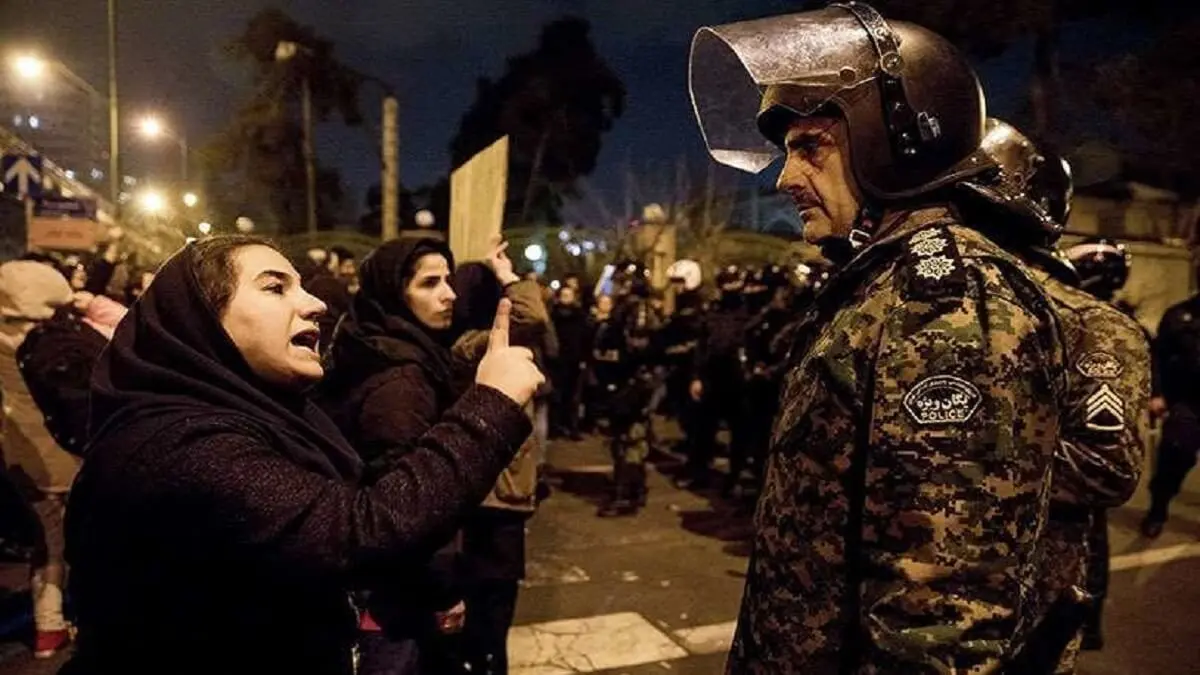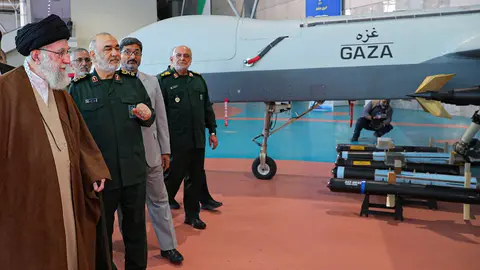Rape as a weapon of regime repression in Iran

Amnesty International denounces the use of rape as a weapon of repression by the Ayatollahs' regime in Iran against opponents mobilised in the context of the popular uprising triggered by the death of Mahsa Amini.
In a recent publication, the organisation denounces the events taking place under the repression of the state of the Islamic Republic of Iran through the security forces.
Amnesty International's publication is reproduced below.
RAPE AS A WEAPON OF REGIME REPRESSION IN IRAN
Iranian security forces committed rape, gang rape and other forms of sexual violence against women, men and children as young as 12 years old who were participating in the "Women, Life, Freedom" uprising. In a new investigation, we have collected several eyewitness accounts and reconstructed the chilling methods of repression used by the Iranian authorities.
120 pages of horror. Our report entitled "I was raped: sexual violence used as a weapon to crush the Iranian uprising Women, Life, Freedom" describes the horrific ordeal of 45 people, including 26 men, 12 women and seven minors, who were subjected to rape, gang rape and other forms of sexual violence at the hands of Iranian intelligence services and security forces.
The rapes were committed to torture, intimidate and punish protesters challenging decades of regime oppression in the context of the popular uprising sparked by the death of Mahsa Amini.
The shocking testimonies we have collected reveal the atrocities inflicted by Iranian security forces on protesters and people in public spaces during the uprising. The main objective is to repress the protesters in order to break them from within and silence them. It is a double punishment: people are victims of sexual violence and then have to remain silent for fear of reprisals from the authorities. In Iran, there is no truth, justice or reparation.
Please note that the testimonies in our report are difficult to read, as they describe rape, other types of sexual violence and psychological trauma. We would like to thank all those who have had the courage and trust to share their testimony.
Detentions, rapes, forced confessions
Our report reveals that the perpetrators of rape and other forms of sexual violence were members of the Pasdaran (Revolutionary Guards), the paramilitary Bassij force, the Ministry of Intelligence and various branches of the police. Among the victims were women and girls who had removed their veils in public, as well as men and boys who had taken to the streets to express their outrage at the death of Mahsa Amini.
During the uprising, Iranian security forces, in uniform or in plainclothes, arbitrarily arrested demonstrators in the street, in their homes or at their workplaces, without warrants. Forced into vehicles, some people were raped in police vans as they were taken to places of detention, such as schools and flat blocks, used illegally as places of detention. In these places the horror continued: torture, single and gang rapes, ill-treatment to extract forced "confessions", humiliation and destruction of morale.
Rape and other sexual violence were often accompanied by other forms of torture and ill-treatment, including beatings, floggings, electric shocks, administration of unidentified pills or injections, deprivation of food and water, and cruel and inhuman conditions of detention. The security forces also systematically refused to allow victims to receive medical treatment, including for rape-related injuries.
Survivors testify to the horror
These Iranian victims of rape and other sexual violence range in age from 12 to 48. For our report, they agreed to testify, despite their trauma and fear of reprisals. While bravely demonstrating for greater freedoms, they were submerged in the nameless brutality and horror of the Iranian regime. Their extremely difficult testimony is necessary if justice is ever to be done.
The complicity of the Iranian judiciary
We have had access to a leaked official document, dated 13 October 2022, which reveals that the authorities suppressed rape complaints filed by two young women against two Revolutionary Guard officers during the demonstrations. Tehran's deputy prosecutor called the case "totally secret" and suggested that it be "gradually closed".
Almost all of those interviewed in our report refrained from filing a complaint after their release, fearing further harm from the Iranian authorities.
Only three victims filed complaints after their release, but two were forced to withdraw them after security forces threatened to abduct and kill them and their relatives. The third was told by a senior official that she had "mistaken" a body search for sexual violence.
Iranian prosecutors and judges have not only been complicit in ignoring or suppressing rape victims' complaints, but have also used coerced "confessions" under torture to bring spurious charges against them and sentence them to prison or death.
To date, the Iranian authorities have not charged or prosecuted any state officials for the rapes and other acts of sexual violence reported in the report. However, they have sentenced to death some of the protesters who were victims of sexual violence by security forces.
Victims' trauma
The women, men and children who agreed to testify in our report told us that they continue to suffer profound physical and psychological trauma as a result of the sexual violence to which they were subjected.
The mother of a high school student who had been raped told us that her son had attempted suicide twice while in detention.
Saha, a protester, was subjected to sexual violence in the detention centre where she was taken. Security forces threatened her with rape and touched her genitals. "I used to be a fighter in life. Even when the Islamic Republic tried to break me, I kept going. Lately, however, I think a lot about suicide [...] I am like someone who waits all day for the night to come so I can sleep," she says.
In the absence of prospects for justice in Iran, the international community has a duty to support victims of sexual violence in obtaining justice. We urge states to open investigations on their own territory, under the principle of universal jurisdiction, into the alleged perpetrators of these crimes in Iran, with a view to issuing international arrest warrants.









